by Florian König, maut1.de - 22 May 2024
As Germany's direct neighbour, France is a popular travel destination, so many Germans decide to travel there in their own vehicle. In addition to the coastal resorts in the south of France and the numerous ski resorts, the metropolis of Paris also attracts millions of visitors every year.
In this blog post, we explain the most important traffic rules in France so that your holiday in France is stress-free and you don't receive any parking tickets in the post.
Information on tolls in France
- The French motorway network is operated by different companies (e.g. APRR in the east, SANEF in the north or ASF in the south) and is subject to tolls. You can conveniently settle the toll costs incurred with a toll box.
- Excluded from the toll are parts of the urban motorways in/around Paris, Lyon, Bordeaux, Marseille and Toulouse as well as some partial and feeder routes.
- On some motorways, such as the A79 (in future also the A13 and A14 as well as the A69 and A40), the toll is collected electronically via number plate recognition in the so-called FreeFlow system.
- The toll motorways (A) are signposted in blue, the toll-free national roads (N) in green and the departmental roads (D) in white.
- A "Crit'Air" (certificat qualité de l'air) environmental badge is required to enter environmental zones, e.g. in Paris, and is subject to a charge.

Speed limits in France
| Inner city | Out of town | Express ways | Motorway | |
| Motorbike | 50 km/h | 80 km/h | 110 km/h | 130 km/h |
| Passenger Car | 50 km/h | 80 km/h | 110 km/h | 130 km/h |
| Car with trailer | 50 km/h | 80 km/h | 70 km/h | 80 km/h |
| Motorhome up to 3.5 t | 50 km/h | 80 km/h | 110 km/h | 130 km/h |
| Motorhome over 3.5 t up to 7.5 t | 50 km/h | 80 km/h | 100 km/h | 110 km/h |
Since 1 July 2018, a speed limit of 80 km/h has been in force on country roads in France.
Special regulations apply for novice drivers: For the first three years after obtaining your driving licence, you must adhere to a limit of 110 km/h on the motorway and 100 km/h on upgraded dual carriageways.
In rain and bad weather, these speed reductions apply to all travellers!
Anyone who exceeds the speed limit in France must expect a fines of up to 1,500 euros.
Speed cameras and warning apps in France
The flashlights for traffic in France are numerous and seem to be everywhere: hidden in rubbish bins, lamps or the corners of houses. Black and grey round columns (now also in use in Germany) can flash all around and even detect motorcyclists.
Since 2013, the French gendarmerie has been using civilian vehicles that have an infrared flash invisibly installed in the front bumper, the radar antenna is hidden behind the licence plate and the camera is on the dashboard. The gendarmes can only be recognised by their uniform, which is then usually too late.
Since 2019, there have been modern speed cameras that can monitor 32 vehicles simultaneously: Mounted on four-metre-high masts above the road or motorway, up to eight lanes within a radius of up to 200 m can be monitored simultaneously.
Traffic offenders are hardly ever stopped on the spot, the French fine notice is only sent by post later; non-payment after the journey is consistently pursued - and expensive.
Since 2011, speed camera alarms, e.g. as a mobile phone app, have been banned in France. Anyone who uses them on holiday anyway and is checked risks a fine of up to 1500 euros. If possible, the speed camera warning function must be deactivated on navigation devices. If this is not technically possible, this will be tolerated and no fine will be imposed.
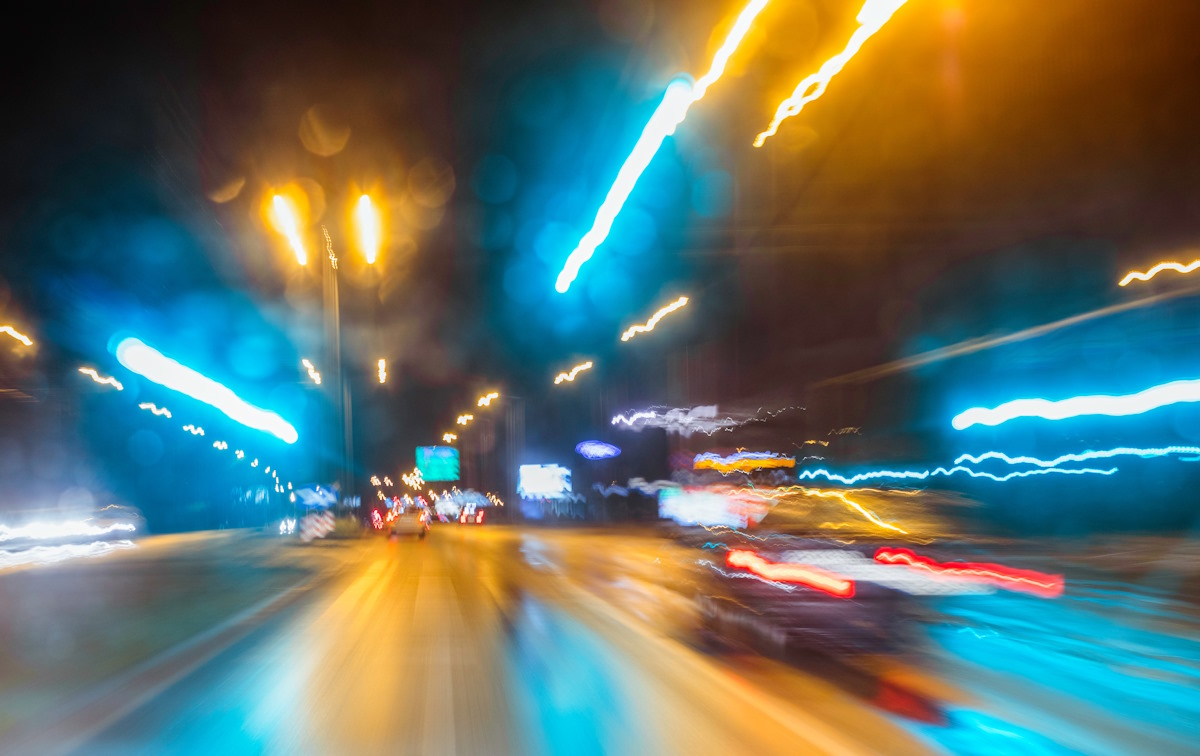
Blood alcohol limit in France
Since summer 2012, a alcohol tester must be carried in France. A disposable tester, which is available from petrol stations and supermarkets for as little as one euro, is sufficient. However, the regulation also applies to all holidaymakers and travellers passing through.
As in Germany, the alcohol limit in France is 0.5 per mille. The fine is 135 euros for a blood alcohol level of between 0.5 and 0.8 per mille. Anyone found to be over 0.8 per mille during a vehicle check must expect a prison sentence of up to 2 years and a fine of 4,500 euros.
The police are also authorised to test drivers for drugs. A positive test also carries a two-year prison sentence and a 4,500 euro fine. Anyone who combines both offences while on holiday, i.e. driving under the influence of drugs and alcohol in France, faces up to 3 years in prison and a fine of up to 9,000 euros!
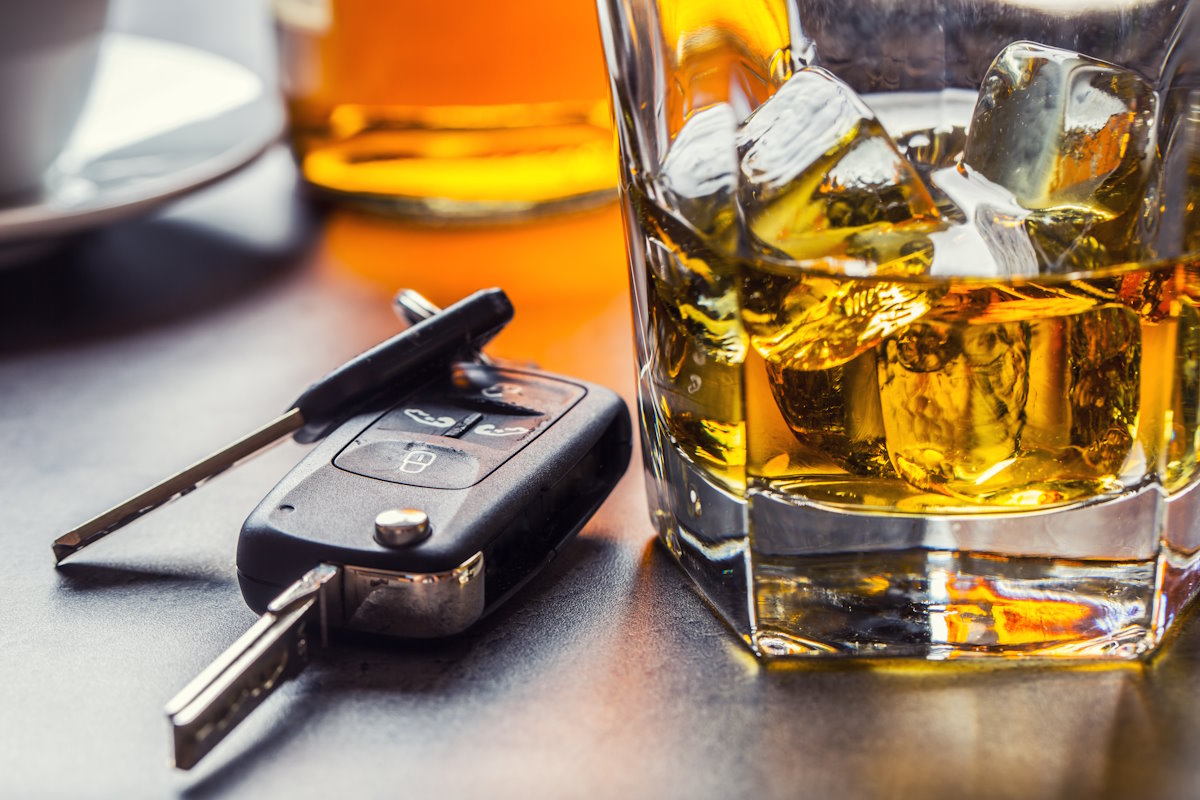
Traffic rules for parking in France
Parking in France is different from parking in Germany: colours on the roadside and signs with numbers that are puzzling regulate where you can park. And the rule is: the bigger the city, the less chance of (free) parking.
During the week, parking fees apply almost everywhere, and anyone who does not comply with them on holiday or exceeds the permitted parking time will receive a parking ticket, whereby there are four different categories…
The desired traffic turnaround in France means that more and more streets and squares in major French cities are car-free zones. In return, there are more and more large Park + Ride (P + R) areas on the outskirts of cities, from which travellers can often use free shuttle buses or free public transport to commute to the city centre.
Complete digital parking time control is becoming increasingly widespread in cities, with electric sensors and automatic number plate systems recording whether the paid or limited free parking time has been observed.
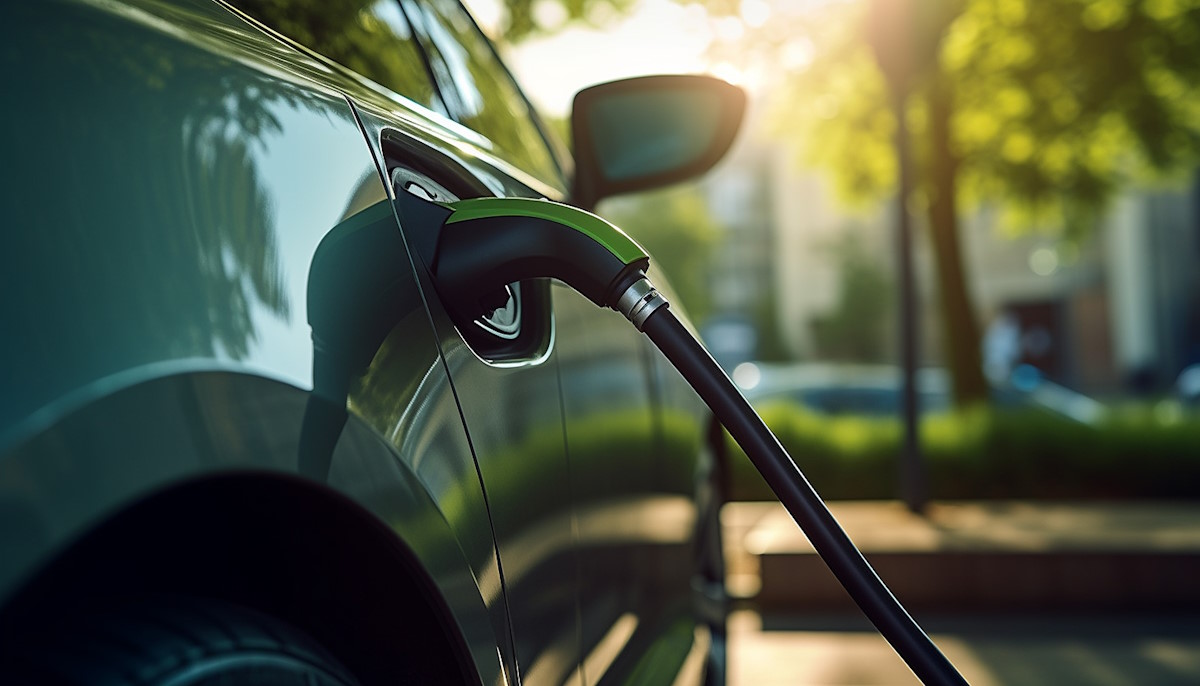
The meaning of the parking lane colours
- Solid yellow lines: absolute stopping and parking ban
- A dashed yellow line: No parking
- Blue line: free, time-limited parking with a parking disc
- White line: Stopping and parking is permitted
It is generally forbidden in France to simply drive halfway onto the pavement to park while on holiday.
Finally, parking on the roadside can also depend on the date and the side of the street: note the signs with date numbers on them: for example, from the 1st to the 15th of the month, parking is permitted on the side of the street with odd numbers, and from the 16th to the 31st on the opposite side with even numbers.
Mobile phone driving
The French police can confiscate a driver's licence for up to six months if mobile phone use is observed while driving, and a fine of €135 is also payable.
Since 22 May 2020, anyone who commits another traffic offence in addition to the unauthorised use of a phone (it is enough to have it in their hand), for example exceeding the speed limit or disregarding the right of way, risks immediately (!) surrendering their driving licence and vehicle.
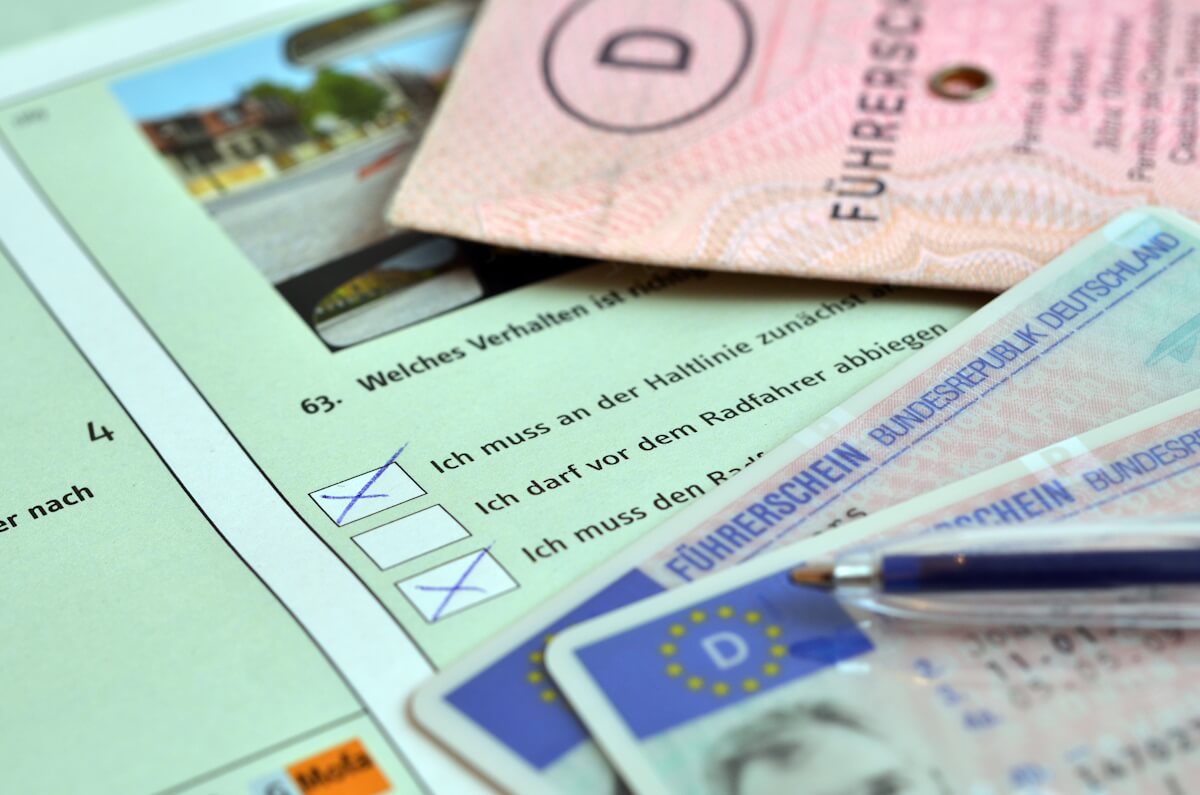
Crit'Air environmental sticker: Does the German fine dust sticker apply?
The nitrogen oxides emitted by traffic, in combination with particulate matter, attack the fabric of buildings and worsen the air quality in cities.
The Crit'Air* environmental or particulate matter sticker ("air quality certificate") is intended to ensure cleaner air in France. The French traffic regulations make it possible to impose driving bans on certain vehicles in the event of increased particulate matter levels or smog (can be ordered online here).
Permanent low emission zones are called ZFE-m ("Zone à Faibles Émissions mobilité") and affect cities and large metropolitan areas. They are signposted and usually apply around the clock in cities such as Grenoble, Lyon, Marseille, Montpellier, Paris, Reims, Rouen, Strasbourg and Toulouse.
Vehicles require at least an orange Crit'Air No. 3 environmental badge to enter the motorway; badges No. 4 or 5 are not valid. In Clermont-Ferrand, Nice and Saint-Étienne, the ZFE-m only applies to lorries so far.
Numerous other major French cities must introduce ZFE-m by 2025.
Temporary environmental zones only apply temporarily in the event of increased air pollution. The measures are labelled "Circulation différenciée" (= differentiated traffic).
The measures will be implemented in stages, with speed limits applying first, followed by driving bans and certain Crit'Air stickers being mandatory. By 31 December 2024, fixed environmental zones are to be established in all conurbations with a population of over 150,000.
Attention: The green fine particle sticker from Germany is not valid when travelling in France!

Other traffic rules in France
The traffic rules in France are of course designed to ensure road safety. In addition to the maximum speed limit in France, seat belts are mandatory for everyone in the car. If holidaymakers are stopped by the police and some of the occupants are not wearing their seatbelts, a fine of 135 euros will be imposed for each person not wearing a seatbelt.
There is no general obligation to use winter tyres in France. However, the use of winter tyres may be prescribed at short notice by signs in appropriate weather conditions (minimum tread depth 3.5 mm). When travelling, it is recommended to equip the vehicle with tyres that have both the M+S marking and the snowflake symbol.
For mountain regions, winter tyres are mandatory from 1 November to 31 March of the following year, including in the Alps, Pyrenees and Vosges, in the Jura and Massif Central and on Corsica.
The use of snow chains can also be ordered at short notice by means of appropriate signs.
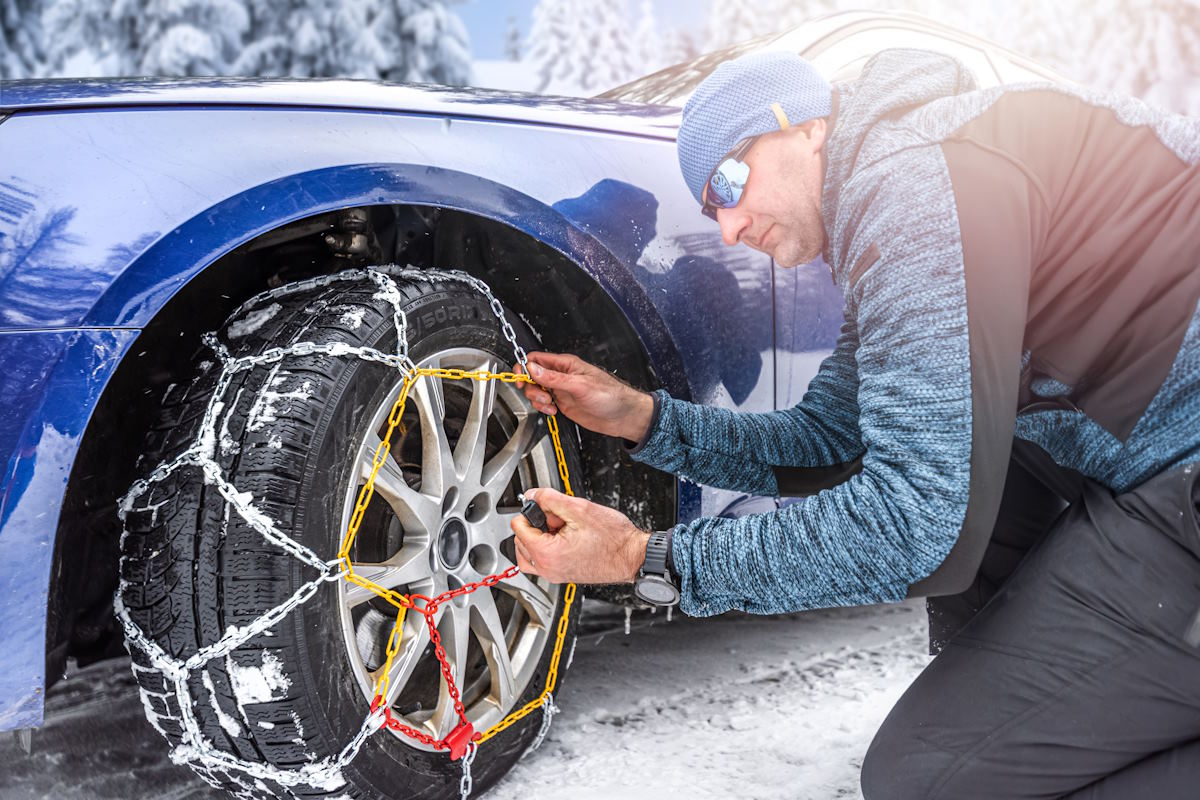
In the event of a breakdown or accident on holiday, all vehicle occupants must leave the carriageway and hard shoulder immediately and wear a high-visibility waistcoat, which must be carried in the vehicle before getting out. It is not necessary to set up a warning triangle on motorways if this puts the driver in danger.
The high-visibility vest requirement also applies to two or three-wheeled motor vehicles and quad bikes. The obligation to wear a high-visibility waistcoat also applies to cyclists at night or during the day in poor visibility outside built-up areas.
Since 1 January 2021, heavy vehicles and large motorhomes over 3.5 tonnes have required a new warning sticker on the sides and rear in France to draw attention to the dangers of blind spots (angles morts).
It has also been prohibited in France since 2015:
- eating or drinking behind the wheel (fine: 75 euros)
- to read a map (fine: 75 Euro)
- looking for something in the glove compartment (fine: 75 Euro)
- listening to music that is too loud (fine: 75 Euro)
- applying make-up or lipstick, even when the car is stationary (fine: 75 Euro)
- smoking in the car in the presence of minors: 68 euros
- no warning triangle or warning waistcoat(s) to be carried: 135 euros
You do not necessarily have to carry spare bulbs for your vehicle when you are on holiday. However, anyone travelling without sufficient lighting due to a defective bulb risks a fine of 180 euros. The police can even arrest the vehicle.
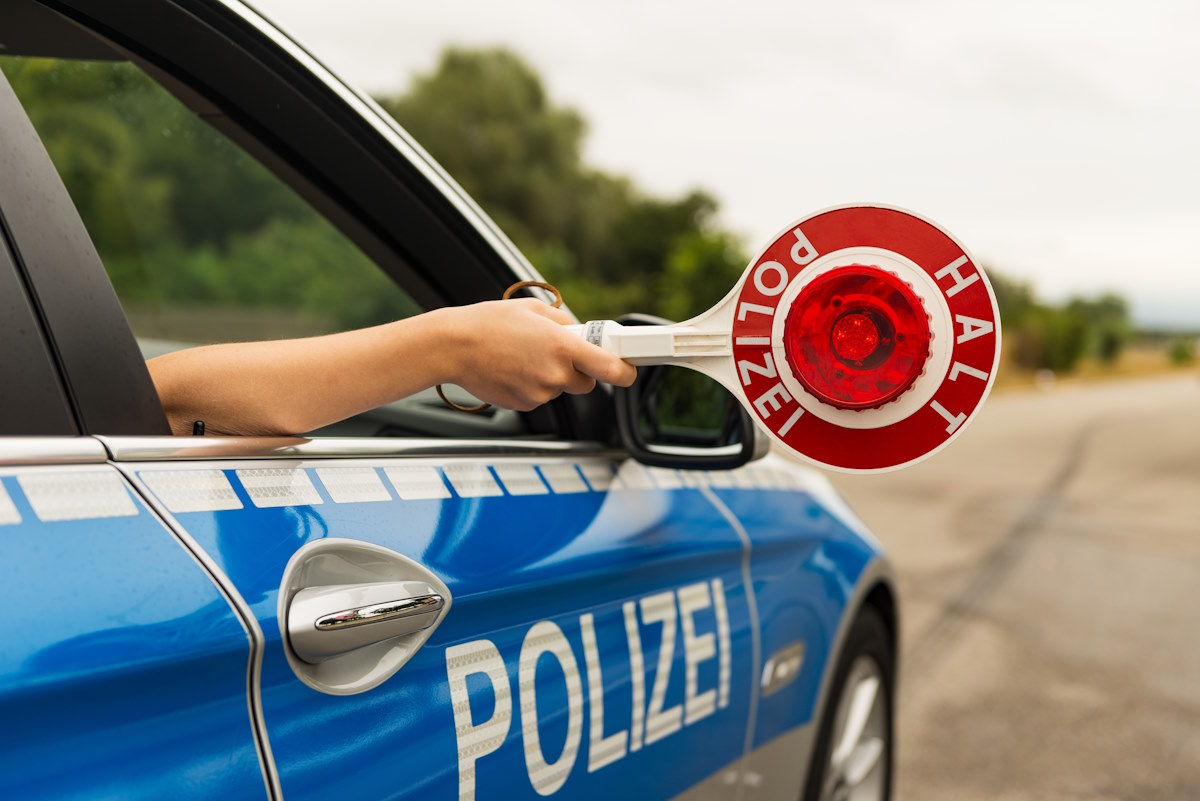
Are fines from France also enforceable in Germany?
Due to a European regulation, a fine for a traffic offence of 70 euros or more from abroad, such as France, can also be enforced in Germany after the trip. However, fines below this amount are also legally enforceable.
In France, the following classifications apply to traffic offences, which determine the amount of the fine:
- Class 1: 11,- or 17,- Euro (e.g. parking offences)
- Class 2: 35,- Euro (e.g. change of direction without indicators, non-payment of the toll)
- Class 3: 68,- Euro (e.g. speeding outside built-up areas less than 20 km/h, unauthorised braking devices))
- Class 4: 135 euros (e.g. use of a telephone, driving without a seatbelt, failure to give way, driving under the influence of alcohol, failure to maintain a safe distance, dangerous overtaking, driving without lights)
- 500,- Euro (e.g. driving a vehicle without insurance)
- 800,- Euro (e.g. driving without or with an invalid driving licence)
If the French fine is not paid immediately, the amount of the fine may increase further. In return, prompt payment is rewarded with discounts. Fines can be paid online at www.amendes.gouv.fr.
The amount of the discount on the fine varies depending on the offence.
If you do not pay the fine from your holiday, you can also expect legal proceedings. If the fine from France is not paid and you drive back to France with the previously identified vehicle, the vehicle may even be confiscated if the traffic rules are broken again.

